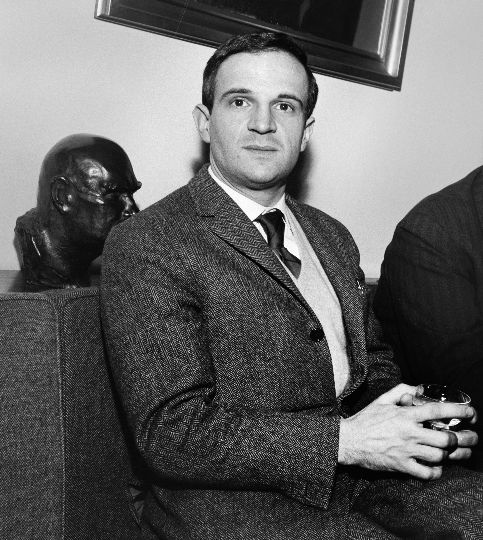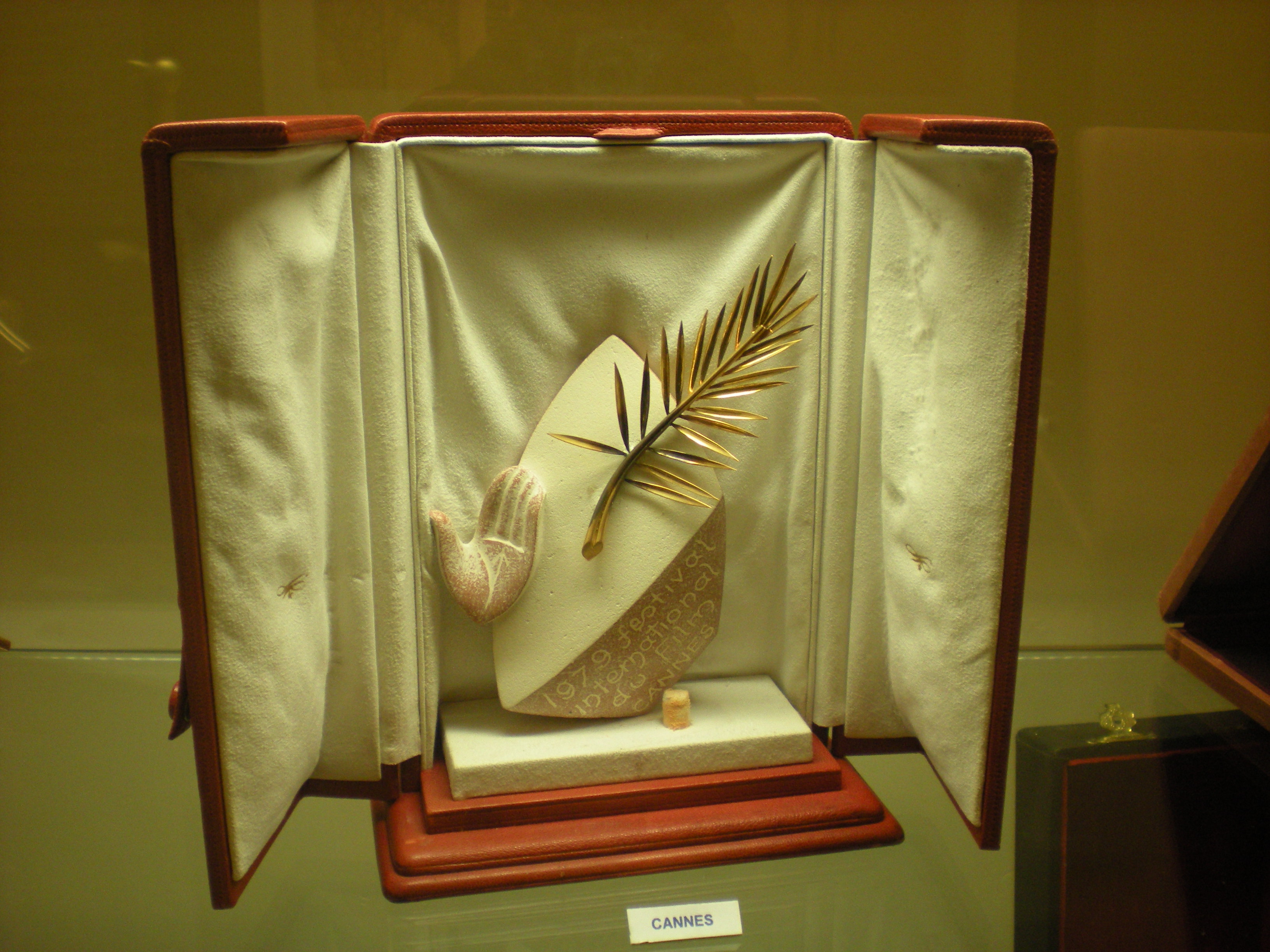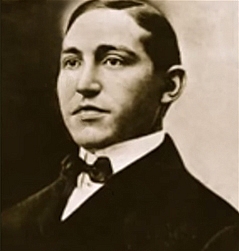|
Lino Ventura
Angiolino Giuseppe Pasquale Ventura (14 July 1919 – 22 October 1987), known as Lino Ventura, was an Italian actor who grew up in France and starred in many French films. Born in Italy, he was raised in Paris by his mother. After a first career as a professional wrestler was ended by injury, he was offered a part as a gang boss in the Jacques Becker film ''Touchez pas au grisbi'' (1954) and rapidly became one of France's favourite film actors, playing opposite many other great stars and working with such leading directors as Louis Malle, Claude Sautet, and Claude Miller. Usually portraying a tough man, either a criminal or a cop, he also featured as a leader of the Resistance in the Jean-Pierre Melville directed ''Army of Shadows'' (''L'armée des ombres'', 1969). After one of his four children, a daughter, was born handicapped, he and his wife founded a charity Perce-Neige (Snowdrop) which aids disabled children and their parents. He was voted 23rd in a poll for the 100 gre ... [...More Info...] [...Related Items...] OR: [Wikipedia] [Google] [Baidu] |
Parma
Parma (; egl, Pärma, ) is a city in the northern Italian region of Emilia-Romagna known for its architecture, Giuseppe Verdi, music, art, prosciutto (ham), Parmigiano-Reggiano, cheese and surrounding countryside. With a population of 198,292 inhabitants, Parma is the second most populous city in Emilia-Romagna after Bologna, the region's capital. The city is home to the University of Parma, one of the oldest universities in the world. Parma is divided into two parts by the Parma (river), stream of the same name. The district on the far side of the river is ''Oltretorrente''. Parma's Etruscan name was adapted by Romans to describe the round shield called ''Parma (shield), Parma''. The Italian literature, Italian poet Attilio Bertolucci (born in a hamlet in the countryside) wrote: "As a capital city it had to have a river. As a little capital it received a stream, which is often dry", with reference to the time when the city was capital of the independent Duchy of Parma. Histor ... [...More Info...] [...Related Items...] OR: [Wikipedia] [Google] [Baidu] |
Razzia Sur La Chnouf
''Razzia sur la chnouf'' (French for "Raid on the Dope") is a 1955 French gangster film directed by Henri Decoin that stars Jean Gabin, Lino Ventura, Lila Kedrova and Magali Noël. The screenplay, based on a novel by Auguste Le Breton, explores the contemporary drug scene in Paris and the efforts of the police to limit it. The film was released as ''Razzia'' in the United States, distributed by Kassler Films Inc. with English subtitles by Herman G. Weinberg. Plot After a spell in the US, master criminal Henri "le Nantais" returns to Paris and is recruited by Paul Liski, head of a major narcotics ring, to improve efficiency of distribution. Merchandise has been disappearing and unreliable dealers must be eliminated. For the latter purpose he is assigned two hit men, Catalan and Bibi. As his cover, he is made manager of a restaurant, Le Troquet, much favoured by the underworld. As soon as he walks in, he catches the eye of the cashier, Lisette, who resolves to be his girl. The firs ... [...More Info...] [...Related Items...] OR: [Wikipedia] [Google] [Baidu] |
François Truffaut
François Roland Truffaut ( , ; ; 6 February 1932 – 21 October 1984) was a French film director, screenwriter, producer, actor, and film critic. He is widely regarded as one of the founders of the French New Wave. After a career of more than 25 years, he remains an icon of the Cinema of France, French film industry, having worked on over 25 films. Truffaut's film ''The 400 Blows'' (1959) is a defining film of the French New Wave movement, and has four sequels, ''Antoine et Colette'' (1962), ''Stolen Kisses'' (1968), ''Bed and Board (1970 film), Bed and Board'' (1970), and ''Love on the Run (1979 film), Love on the Run'' (1979). Truffaut's 1973 film ''Day for Night (film), Day for Night'' earned him critical acclaim and several awards, including the BAFTA Award for Best Film and the Academy Award for Best Foreign Language Film. His other notable films include ''Shoot the Piano Player'' (1960), ''Jules and Jim'' (1962), ''The Soft Skin'' (1964), ''The Wild Child'' (1970), ''T ... [...More Info...] [...Related Items...] OR: [Wikipedia] [Google] [Baidu] |
Robert Aldrich
Robert Burgess Aldrich (August 9, 1918 – December 5, 1983) was an American film director, producer, and screenwriter. His notable credits include '' Vera Cruz'' (1954), ''Kiss Me Deadly'' (1955), ''The Big Knife'' (1955), '' Autumn Leaves'' (1956), '' Attack'' (1956), '' What Ever Happened to Baby Jane?'' (1962), '' Hush...Hush, Sweet Charlotte'' (1964), '' The Flight of the Phoenix'' (1965), ''The Dirty Dozen'' (1967) and '' The Longest Yard'' (1974). Early life Family Robert Burgess Aldrich was born in Cranston, Rhode Island, into a family of wealth and social prominence – "The Aldriches of Rhode Island". His father, Edward Burgess Aldrich (1871–1957) was the publisher of ''The Times'' of Pawtucket and an influential operative in state Republican politics. His mother, Lora Elsie (née Lawson) of New Hampshire (1874–1931), died when Aldrich was 13 and was remembered with fondness by her son. Ruth Aldrich Kaufinger (1912–1987) was his elder sister and only sib ... [...More Info...] [...Related Items...] OR: [Wikipedia] [Google] [Baidu] |
Apocalypse Now
''Apocalypse Now'' is a 1979 American epic war film produced and directed by Francis Ford Coppola. The screenplay, co-written by Coppola, John Milius and Michael Herr, is loosely based on the 1899 novella ''Heart of Darkness'' by Joseph Conrad, with the setting changed from late 19th-century Congo to the Vietnam War. The film follows a river journey from South Vietnam into Cambodia undertaken by Captain Willard (Martin Sheen), who is on a secret mission to assassinate Colonel Kurtz (Marlon Brando), a renegade Special Forces officer who is accused of murder and presumed insane. The ensemble cast also features Robert Duvall, Frederic Forrest, Albert Hall, Sam Bottoms, Laurence Fishburne and Dennis Hopper. Milius became interested in adapting ''Heart of Darkness'' for a Vietnam War setting in the late 1960s, and initially began developing the film with Coppola as producer and George Lucas as director. After Lucas became unavailable, Coppola took over directorial control, and w ... [...More Info...] [...Related Items...] OR: [Wikipedia] [Google] [Baidu] |
Cento Giorni A Palermo
''One Hundred Days in Palermo'' ( it, Cento giorni a Palermo) is a 1984 non-fiction film directed by Giuseppe Ferrara with Giuseppe Tornatore as screenplay writer. The film is a France/Italy coproduction and tells about the last hundred days in the life of the Italian " Generale dei Carabinieri" and anti-mafia highest authority Carlo Alberto Dalla Chiesa as prefect of Palermo, the capital of the Italian island of Sicily. Dalla Chiesa's life ended with his barbaric murder, shot by the machine guns of a mafia squad (along his wife and his bodyguard) on September 3, 1982. Cast * Lino Ventura as General Carlo Alberto Dalla Chiesa * Giuliana De Sio as Emanuela Setti Carraro * Lino Troisi as Pio La Torre * Stefano Satta Flores as Captain Fontana * Arnoldo Foà as Virginio Rognoni * Andrea Aureli * Accursio Di Leo * Adalberto Maria Merli Adalberto Maria Merli (born 14 January 1938) is an Italian actor and voice actor. Biography Born in Rome, Merli is active on film and telev ... [...More Info...] [...Related Items...] OR: [Wikipedia] [Google] [Baidu] |
Illustrious Corpses
''Illustrious Corpses'' ( it, Cadaveri eccellenti) is a 1976 Italian-French thriller film directed by Francesco Rosi and starring Lino Ventura, based on the novel '' Equal Danger'' by Leonardo Sciascia (1971). The film was screened at the 1976 Cannes Film Festival, but was not entered into the main competition. Its title refers to the surrealist game, Cadavre Exquis, invented by André Breton, in which the participants draw consecutive sections of a figure without seeing what the previous person has drawn, leading to unpredictable results, and is meant to describe the meandering nature of the film with its unpredictable foray into the world of political manipulations, as well as the ("illustrous") corpses of the murdered judges. In 2008, the film was selected to enter the list of the 100 Italian films to be saved. Plot The film starts with the murder of Investigating Judge Vargas in Palermo, amongst a climate of demonstrations, strikes and political tension between the Left an ... [...More Info...] [...Related Items...] OR: [Wikipedia] [Google] [Baidu] |
The Last Judgment (1961 Film)
''The Last Judgment'' ( it, Il giudizio universale) is a 1961 commedia all'italiana film by Italian director Vittorio De Sica. It was coproduced with France. It has an all-star Italian and international cast, including Americans Jack Palance, Ernest Borgnine; Greek Melina Mercouri and French Fernandel, Anouk Aimée and Lino Ventura. The film was a huge flop, massacred by critics and audiences when it was released. It was filmed in black and white, but the last sequence, the dance at theatre, is in color. Plot At the morning of a normal day of a Naples that begins to hear complex and not always positive effects of the economic boom, a stentorian voice (Nicola Rossi-Lemeni) which seems to come down from heaven announces that "At 18 begins the Last Judgement!". The announcement is repeated with increasing insistence, first treated with disdain and then more and more frightening. The plot is fragmented into a series of scenarios and stories intertwined: the preparation of the great ... [...More Info...] [...Related Items...] OR: [Wikipedia] [Google] [Baidu] |
The Valachi Papers (film)
''The Valachi Papers'' is a 1972 Italian-French crime neo noir directed by Terence Young. It is an adaptation of the 1968 non-fiction book of the same name by Peter Maas, with a screenplay by Stephen Geller. It tells the story of Joseph Valachi, a Mafia informant in the early 1960s who was the first ever mafioso to acknowledge the organization's existence. The film stars Charles Bronson as Valachi and Lino Ventura as crime boss Vito Genovese, with Jill Ireland, Walter Chiari, Joseph Wiseman, Gerald S. O'Loughlin, Guido Leontini, Amedeo Nazzari, Fausto Tozzi, Pupella Maggio, and Angelo Infanti. Plot Joseph Valachi is an aging prisoner in the Atlanta Federal Penitentiary, who was imprisoned for smuggling heroin. The boss of his crime family, Vito Genovese, is imprisoned there as well. Genovese is certain that Valachi is an informant, and gives him the " kiss of death," whereupon Valachi kisses him back. Valachi mistakenly kills a fellow prisoner who he wrongly thinks is a m ... [...More Info...] [...Related Items...] OR: [Wikipedia] [Google] [Baidu] |
Vito Genovese
Vito Genovese (; November 21, 1897 – February 14, 1969) was an Italian-born American mobster who mainly operated in the United States. Genovese rose to power during Prohibition as an enforcer in the American Mafia. A long-time associate and childhood friend of Lucky Luciano, Genovese took part in the Castellammarese War and helped shape the rise of the Mafia and organized crime in the United States. He would later lead Luciano's crime family, which was renamed the Genovese crime family in his honor. Along with Luciano, Genovese helped the expansion of the heroin trade to an international level. In 1937, he fled to Italy, and for a brief period during World War II, he supported Benito Mussolini's regime in Italy for fear of being deported back to the United States to face murder charges. He returned to the United States in 1945. Genovese served as mentor to Vincent "Chin" Gigante, the future boss of the Genovese crime family. In 1957, Genovese vied for the boss of bosses tit ... [...More Info...] [...Related Items...] OR: [Wikipedia] [Google] [Baidu] |
American Mafia
The American Mafia, commonly referred to in North America as the Italian American Mafia, the Mafia, or the Mob, is a highly organized Italian American criminal society and organized crime group. The organization is often referred to by its members as Cosa Nostra (, "our thing" or "this thing of ours") and by the American government as La Cosa Nostra (LCN). The organization's name is derived from the original ''Mafia'' or ''Cosa nostra'', the Sicilian Mafia, with "American Mafia" originally referring simply to Mafia (or ''Cosa nostra'') groups from Sicily operating in the United States, as the organization initially emerged as an offshoot of the Sicilian Mafia (known also as ''Cosa nostra'' by its members) formed by Italian immigrants in the United States. However, the organization gradually evolved into a separate entity partially independent of the original Mafia in Sicily, and it eventually encompassed or absorbed other Italian immigrant and Italian-American gangsters and Italia ... [...More Info...] [...Related Items...] OR: [Wikipedia] [Google] [Baidu] |
The Threepenny Opera
''The Threepenny Opera'' ( ) is a "play with music" by Bertolt Brecht, adapted from a translation by Elisabeth Hauptmann of John Gay's 18th-century English ballad opera, ''The Beggar's Opera'', and four ballads by François Villon, with music by Kurt Weill. Although there is debate as to how much, if any, Hauptmann might have contributed to the text, Brecht is usually listed as sole author. The work offers a socialist critique of the capitalist world. It opened on 31 August 1928 at Berlin's Theater am Schiffbauerdamm. Songs from ''The Threepenny Opera'' have been widely covered and become standards, most notably "" ("The Ballad of Mack the Knife") and "" ("Pirate Jenny"). Background Origins In the winter of 1927–28, Elizabeth Hauptmann, Brecht's lover at the time, received a copy of Gay's play from friends in England and, fascinated by the female characters and its critique of the condition of the London poor, began translating it into German. Brecht at first took lit ... [...More Info...] [...Related Items...] OR: [Wikipedia] [Google] [Baidu] |





